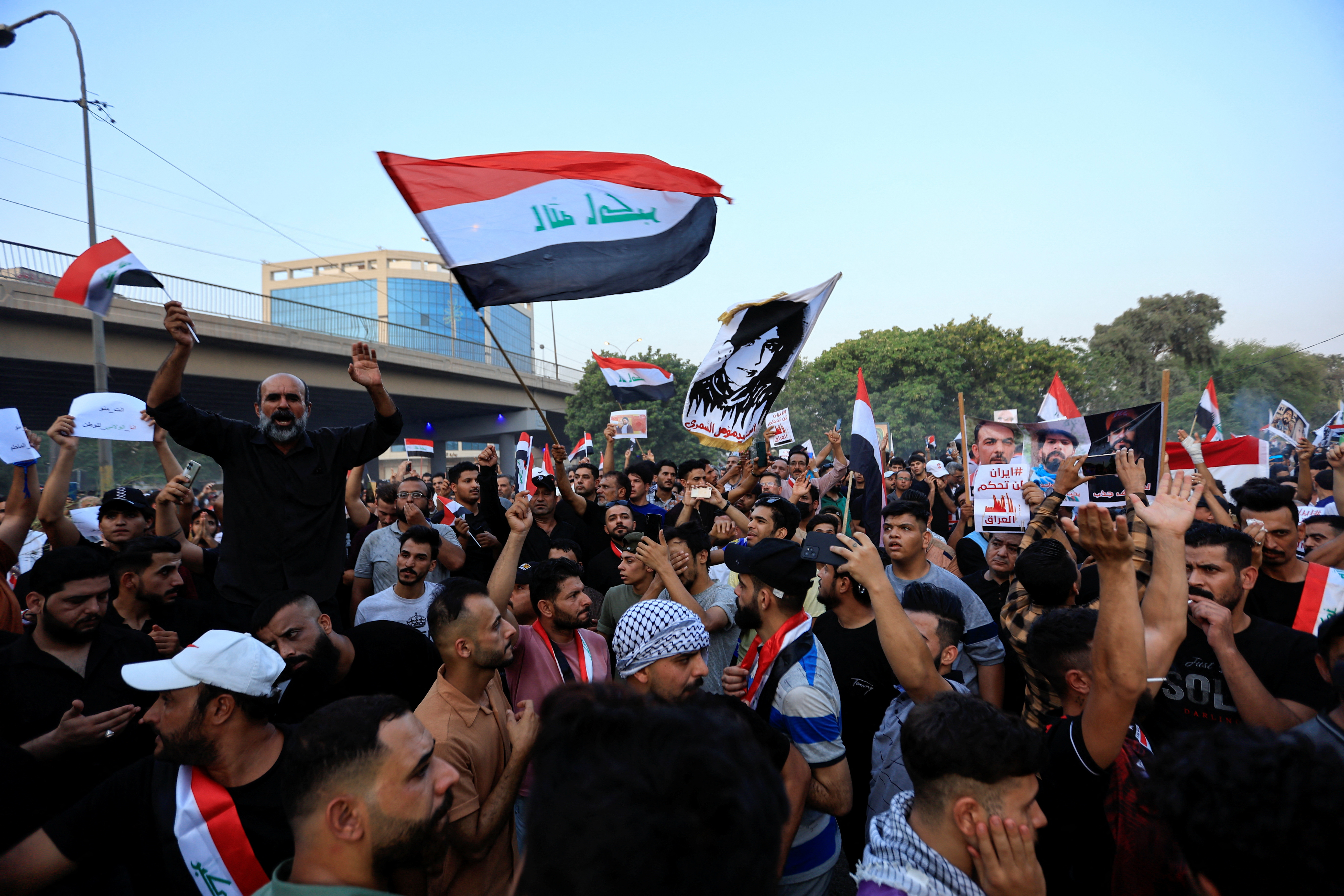
Reflections on the 20th anniversary of the Iraq war commonly refer to three decisions taken by the United States and its allies during the immediate post-war period that are widely regarded as catastrophic errors: the purge of Baath party loyalists from state institutions, referred to as “de-Baathification”; the dissolution of the Iraqi army, which precipitated a significant security vacuum; and the enforcement of a new power-sharing formula along ethnosectarian lines, commonly referred to in Arabic as “al-muhasasa al-ta’ifiya”.
Muhasasa is widely decried as emblematic of a broken political system that spawned a sectarian civil war and entrenched endemic corruption and dysfunctional governance.
When Paul Bremer’s Coalition Provisional Authority formed the Iraqi Governing Council in 2003, its 25 members were chosen on the basis of their ethnosectarian backgrounds, commensurate with each confessional group’s demographic weight.
Hence, Shia leaders made up just over half of the council, while Kurds and Sunni Arabs had five seats each, and two seats were reserved for Iraq’s Assyrian and Turkmen minorities.
The architects of this arrangement saw it as the surest way to ensure inclusive representation and to check the power of any single confession to prevent the re-emergence of authoritarian rule.
The design and makeup of the Governing Council would come to define elite bargaining and the post-2003 political settlement for the next two decades. Every Iraqi government since 2005 has sought to preserve this delicate balance between the country’s confessional groups.
Holding Iraq back?
Muhasasa at the elite level is structurally unremarkable because it is essentially just a quota system that distributes power in accordance with the relative political weight of competing factions.
Party loyalists are appointed to senior government posts, much like political appointees exist in other countries.
The problem in Iraq is that those who hold positions of influence are often wholly unqualified, or even worse, are placed there for the purpose of enriching their patrons through illicit means.
Muhasasa’s detractors believe that until this informal arrangement is dismantled, Iraq will continue to exhibit all the chronic symptoms of a dysfunctional kleptocracy where people are rewarded on the basis of political fealty rather than merit. They also assert that the system reinforces ethnosectarian divisions because it defines political actors through the prism of confessional identity.
While all of Iraq’s ruling elite have benefitted from muhasasa, none will openly defend it because of its toxic connotations. Instead, political factions across the board – whether Shia, Sunni, Kurdish or minorities – refer in euphemistic terms to the necessity of maintaining “tawazun”, shorthand for ensuring balanced representation of Iraq’s confessional groups across state institutions.
What gives the ethnosectarian dimension of muhasasa greater credence is the fact that all of Iraq’s governing factions are based on confessional identities.
Aspirations to create parties that cross the ethnosectarian divide are well-founded, but the salience of identity politics in Iraq is often underestimated.
Different experiences
Confession-based political movements are built on more than just tribalistic impulses. Modern Iraq was established by British colonialists on the basis of sowing divisions between Sunni, Shia and Kurds, and a century later, the lived experiences of these groups are vastly different.
For instance, the Kurdish parties of Iraq exist by virtue of the fact that Kurds have a distinct communal memory – they were historically marginalised and persecuted on the basis of their Kurdish identity, and they have aspirations for statehood, a position not shared by their Arab counterparts.
So it is only natural for Kurds to organise their politics around the centrality of their ethnic identity. Meanwhile, Sunni and Shia Arabs, by virtue of their own respectively distinct experiences with state power, do not have identical political aspirations either.
What is clear is that any real change to Iraq’s existing power-sharing formula will need to begin at the local level.
During the elections of 2010 and 2018, there were attempts by some factions to form cross-sectarian platforms, but these efforts ultimately failed because there was little that bound together disparate groups from across the country beyond nationalistic sloganeering and generic policy positions on creating jobs, improving services, and tackling corruption.
Furthermore, those who align their politics with sect-based parties do not see themselves in opposition to nationalism, but rather, they believe that their political aspirations are better served through the prism of identity politics.
The first step to moving beyond this approach is for diverse communities at the local level to recognise that their collective interests are better served by focusing on their local issues.
Viewed from the lens of an elite pact, muhasasa’s power-sharing arrangement explains why the post-2003 order has remained robust despite multiple attempts to overturn it.
Nevertheless, the existing muhasasa formula is by no means set in stone.
The current political settlement that began with regime change and took shape through the Governing Council is not static, but rather in constant flux.
This is the paradox of Iraq’s so-called political settlement.
Though the 2019 Tishreen protest movement may not have achieved its more ambitious objectives, it did fundamentally change the political settlement.
Tishreen transformed popular protests from mere symbolic gestures into an instrument of power.
Whether it can be harnessed in a way that can yield more tangible changes to the power dynamics depends largely on the coherence and vision of the movement.







